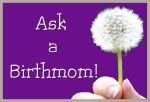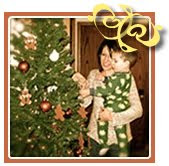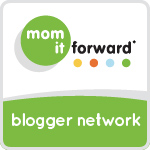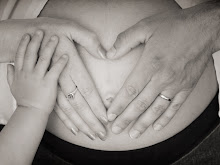I had First Contact with my birth mother when I was 31 years old. I didn’t tell my adoptive parents for months, and maybe never would have, except that my Bishop counseled me to. My adoptive mother’s reaction was exactly what I expected, which is why I didn’t want to tell. She was shocked. She felt betrayed. She wondered what she should have done differently as an adoptive mom so that I would not have gone down the path of finding my first mother.
Up until the day he died, even after he developed dementia, my adoptive father was upset with me for having a relationship with my birth mother, because it had upset my a-mother. “You broke your mother’s heart,” he used to say.
I’d like to think my parents see things differently now that they are on the other side of the veil.
My mother feared that my adoption reunion meant I was on the brink of apostatizing from the LDS Church Temple Bruce R. McConkie and John A. Widtsoe Abraham .
Towards Reconciliation
My parents’ attitudes about adoptees' contact with biological parents were not uncommon for their time. Unfortunately, these attitudes can still be found in some adoptive parents today, and there's no excuse for it. I am saddened to read about adoptive parents who close adoptions that were promised to be open. Do they feel that their status as parent may be diminished if birth parents are in the picture? Truth be told, I probably would have bonded more closely to my adoptive parents if they had been able to acknowledge my emotional needs. If an adoptive parent cannot accept a child’s family of origin, he/she cannot fully accept the child. The child will sense it. I know. I've been there.
I realize I am preaching to the choir here. I am sure adoptive parents coming to this blog understand the importance of keeping adoptions open. But perhaps you could broadcast it to other adoptive parents at FSA conferences and such. Or send them to this post, please.
Some a-parents may ask, “What about the Temple
In the 2010 magazine booklet Temples
President Hinckley further teaches that family relationships bound together through the sealing ordinances may continue in the world to come. Adoptive parents will have a relationship with their children for eternity. Still, the temple sealing ordinance is a binding ordinance, not a separating ordinance. It does not separate birth parents from the children they relinquished.
President Hinckley states, "...When asked by the scribe, 'Which is the first commandment of all?' the Savior replied, "Thou shalt love the Lord thy God with all thy heart, and with all thy soul, and with all thy mind, and with all thy strength: this is the first commandment. 'And the second is like, namely this, Thou shalt love thy neighbour as thyself' (Mark 12:28, 30–31).
The teachings set forth in modern temples give powerful emphasis to this most fundamental concept of our duty to our Maker and to our neighbors. Sacred ordinances amplify this ennobling philosophy of the family of God. They teach that the spirit within each of us is eternal, in contrast with the body, which is mortal. They not only give understanding of these great truths but also motivate the participant to love of God and encourage him to demonstrate a greater neighborliness toward others of our Father's children."
How can temple-worthy adoptive parents "demonstrate a greater neighborliness toward others of our Father's children [birth parents]" and then close an adoption, denying birth parents a relationship with the one they brought into mortality? Why do they deny their child's emotional needs for this connection? Please read this post by adoptee and adoptive parent Rebecca Hawkes. She explains much better than I could how adoptive parents can tune into their child's needs.
Children sealed to adoptive parents in the temple do not have greater distance from birth parents than children who are not sealed. In fact, the sealing ordinance can bring adoptive children closer to birth parents. The temple does not sever biological ties; it expands families. There is room for everyone.
The teachings set forth in modern temples give powerful emphasis to this most fundamental concept of our duty to our Maker and to our neighbors. Sacred ordinances amplify this ennobling philosophy of the family of God. They teach that the spirit within each of us is eternal, in contrast with the body, which is mortal. They not only give understanding of these great truths but also motivate the participant to love of God and encourage him to demonstrate a greater neighborliness toward others of our Father's children."
How can temple-worthy adoptive parents "demonstrate a greater neighborliness toward others of our Father's children [birth parents]" and then close an adoption, denying birth parents a relationship with the one they brought into mortality? Why do they deny their child's emotional needs for this connection? Please read this post by adoptee and adoptive parent Rebecca Hawkes. She explains much better than I could how adoptive parents can tune into their child's needs.
Children sealed to adoptive parents in the temple do not have greater distance from birth parents than children who are not sealed. In fact, the sealing ordinance can bring adoptive children closer to birth parents. The temple does not sever biological ties; it expands families. There is room for everyone.
Note:
In addition to doing guest posts on the B4A blog, I have started my own blog called Earth Stains. My messages on Earth Stains are more targeted to adoptees, with a focus on health and wellness. I hope everyone can glean something from my writings, so please stop by. I signed up for the Adoption Interview project, so look for my interview on Thursday, November 17th. I interviewed a fantastic mom named Rachel who has an adopted son and daughter from China
Happy November!

























7 comments:
Megan I am so happy you are writing again!!!!
awesome! i couldnt agree more!
I was taken aback by some of those comments that your parents said to you. Of course you were curious. Its nice to see the other side of the situation and see how uplifting you are. Thank you. :)
I'm so glad that AP attitudes have changed. My adopted son is always happier after we have had a good talk about his birth mother and I acknowledge any sadness he may have from being separated from her even though he's never known her. I tell him I can't wait to see her again someday and give her a big hug and tell her how much I love her and am grateful to her.
Megan,
As your birthmother, I am most surprised by your post. You never told me any of this. If you had, it would have made a huge difference in our relationship.
I join with you in encouraging adoptive parents to keep adoptions open. Let me add, birthmothers need to keep adoptions open as well.
Some adoption practitioners present openness to birthmothers as a benefit for them, and don't stress the benefit to the child. Some mothers who find the thought of seeing their child painful, refuse contact with their child, unaware of how this impacts the child. In fact, some birthmothers believe that "staying out of the way" is best. I encourage birthmothers to remain in contact with their child in spite of the pain.
By the way, Happy Birthday!
What a great post! I'm neither Mormom (nor, any longer, particularly religious), but I do believe that the realm beyond this one holds connection for all of us ... and so, why wouldn't this world, also?
Open adoption requires committed, deep, honest, straightforward communication and I'm so glad to see much more support for those involved these days.
I want to thank you for this blog post. You have no idea how much it has helped me. I am soon to adopt two young children from foster care and we will be sealed to them in the temple in a few months.
I have felt a strong prompting that I am supposed to do their genealogy for them as much as possible. I think this is partly because an open adoption is not feasible at this time, as both parents are drug addicts and criminals and have fled to Mexico (though I hope we can communicate through letters). I feel that if they have their genealogy it will help them to have a positive connection with their ancestors.
However, when I told both my mother and mother-in-law, their reaction was the same in both cases. They said something to the effect that "When they are sealed to you they will be part of your genealogy instead, because they were always meant to be part of your line." At first I felt like I must be a rebel in the church, since I refused to believe this "doctrine" that they were telling me. After all, all of the foster and adoption training we took talked about how important a connection with the biological family is!
So, your blog helped reassure me that what my mother and mother-in-law are saying is NOT actually doctrine. In fact, I can believe that the sealing ordinance will actually bind my family with my children's biological families! Then it would make sense why I feel these urges to seek out more information about their birth families.
One more thing, you talk about how how your mother's heart was broken because you sought out your birth mother. I have to say that, being in the same situation she was in, I can understand the feelings, though I can't explain them. When my foster children were still having visits with their mother, I was always insanely jealous that I had to "share" my children with her and that they might have affection for her, too. Of course, this is absurd, since she was drug addicted and only saw her kids for an hour a week - yet the thought of them calling someone else "mommy" drove me to distraction. I wanted to share this with you because I think it must be some sort of maternal instinct that is hard-wired into us! I have had to fight it every step of the way because I know that it is important to speak positively about their birth families as they grow up, and hopefully have a safe connection with them. But, I do relate to what your mother was feeling, even if I don't understand quite why it happens.
Anyway, thank you so much for your article. Thank you for helping me justify my promptings to seek out family ties for my children. Thank you for clearing up some doctrinal concerns I had. Lot of love for you.
Post a Comment